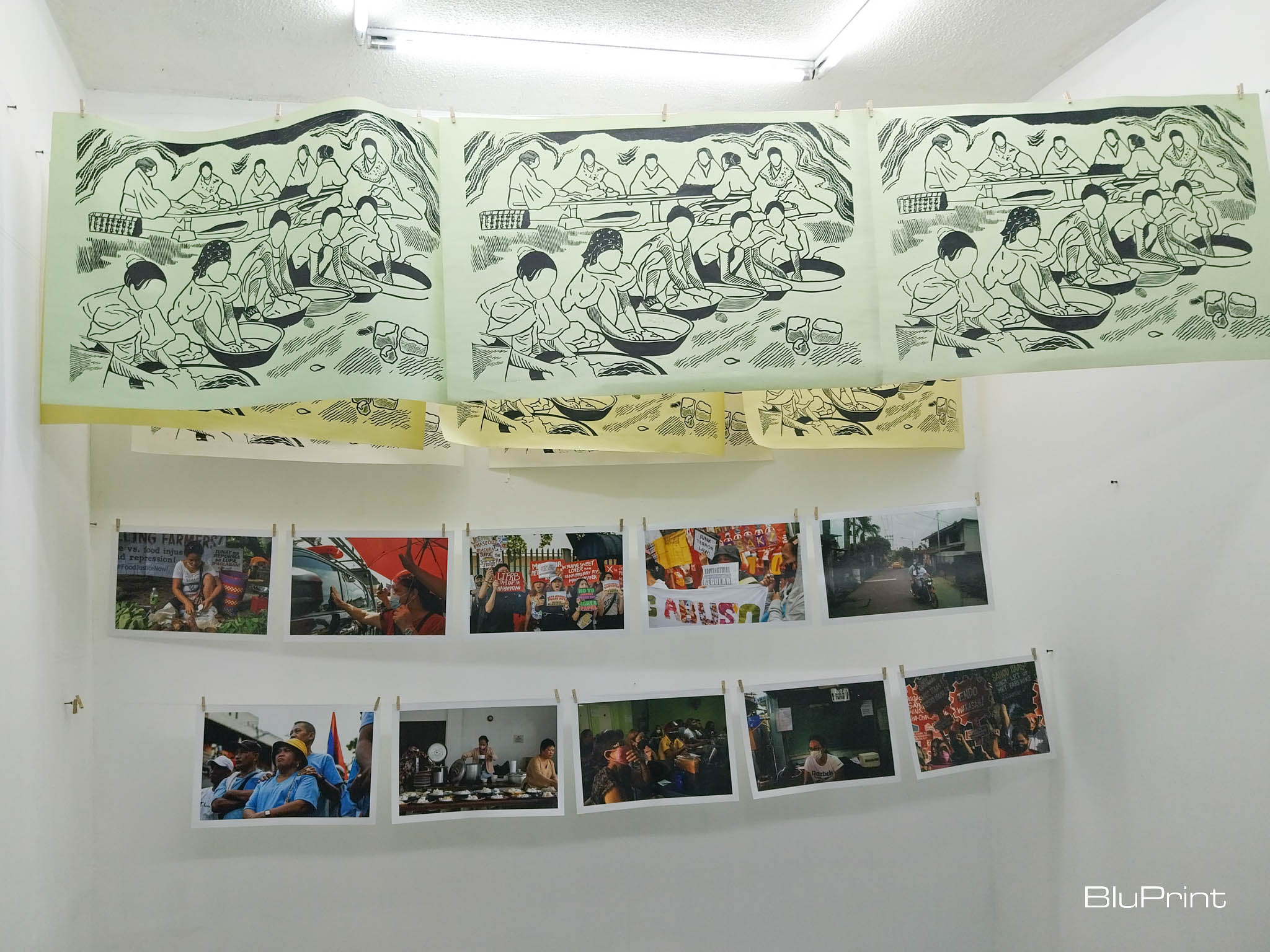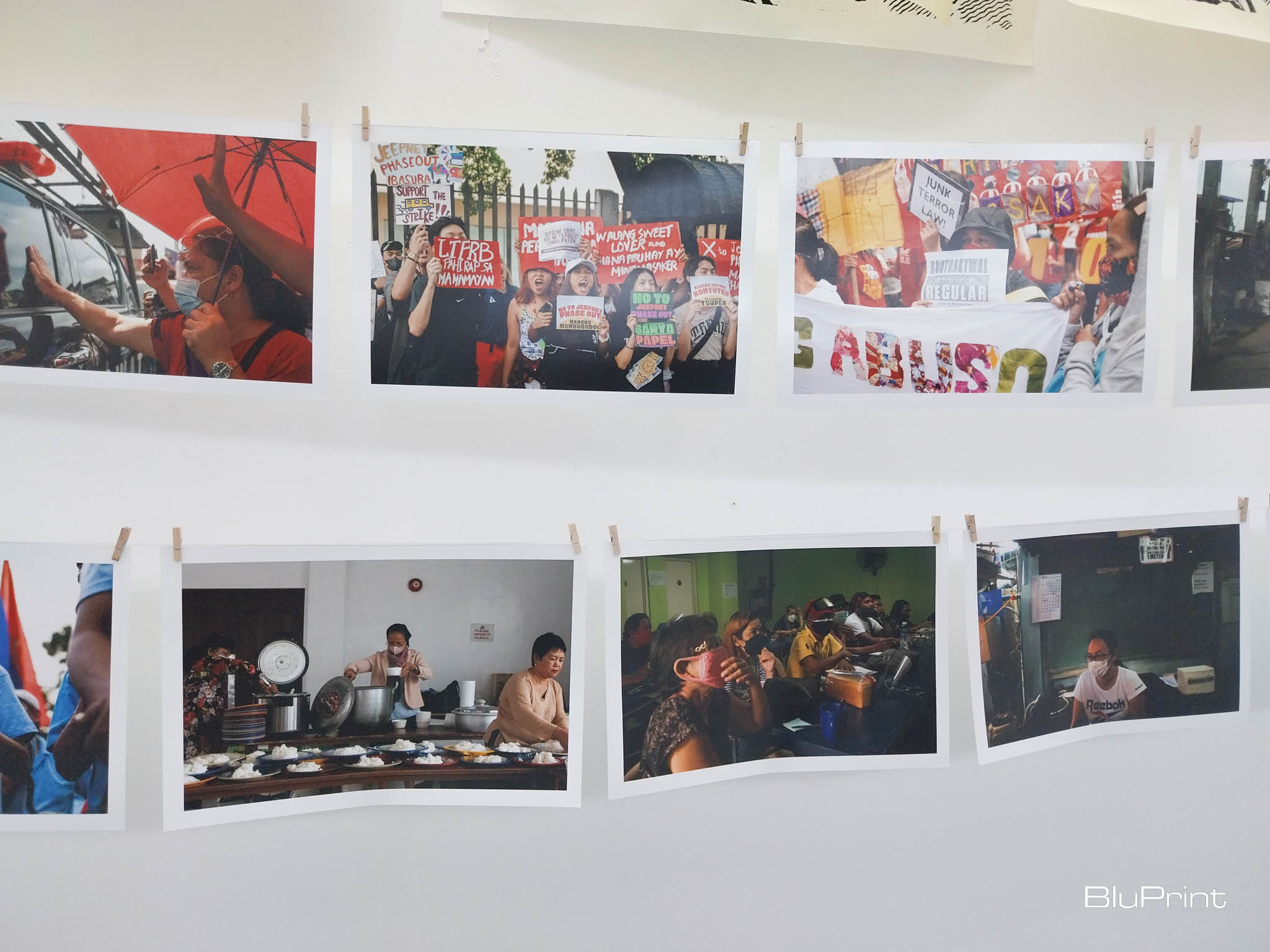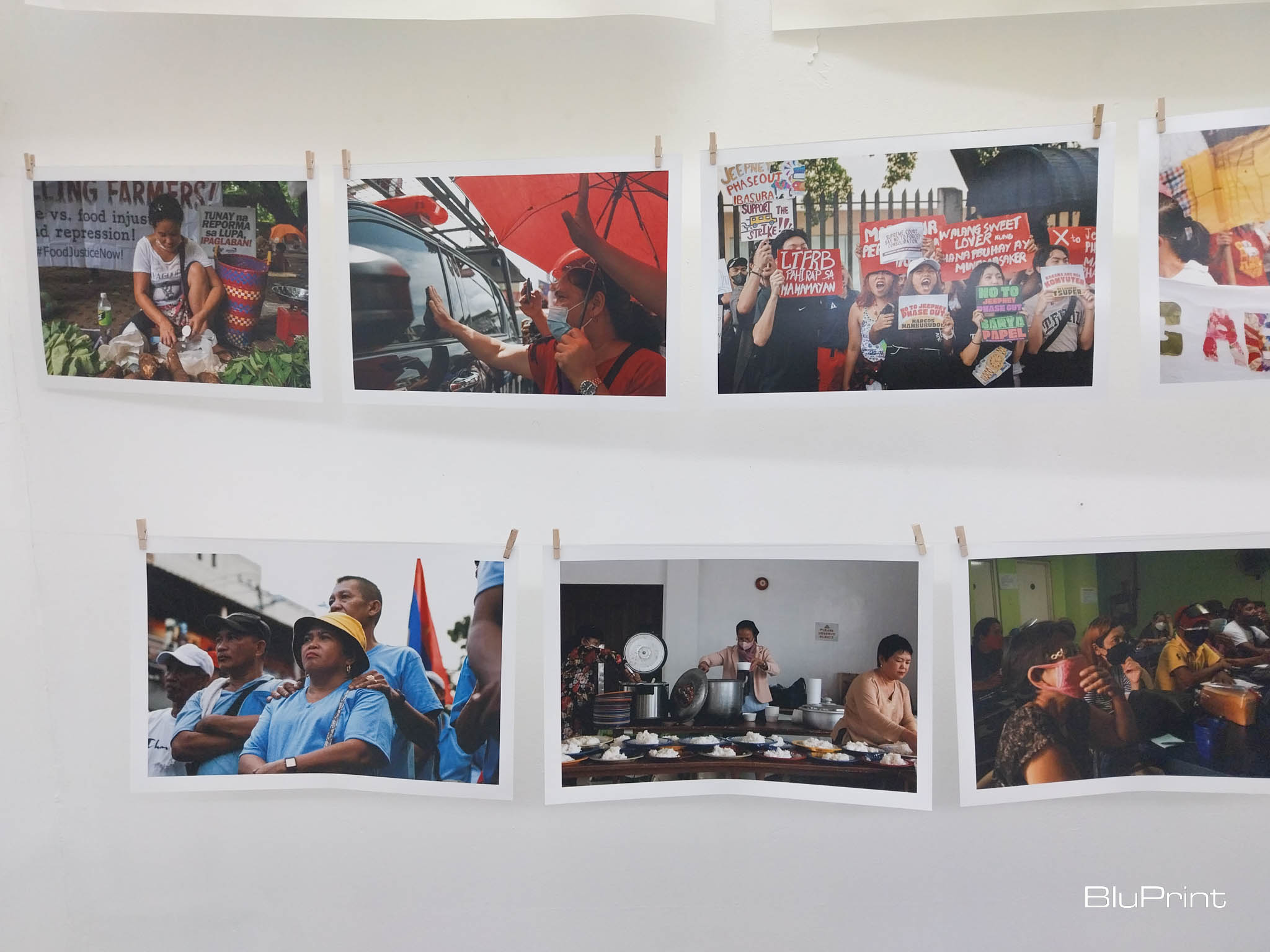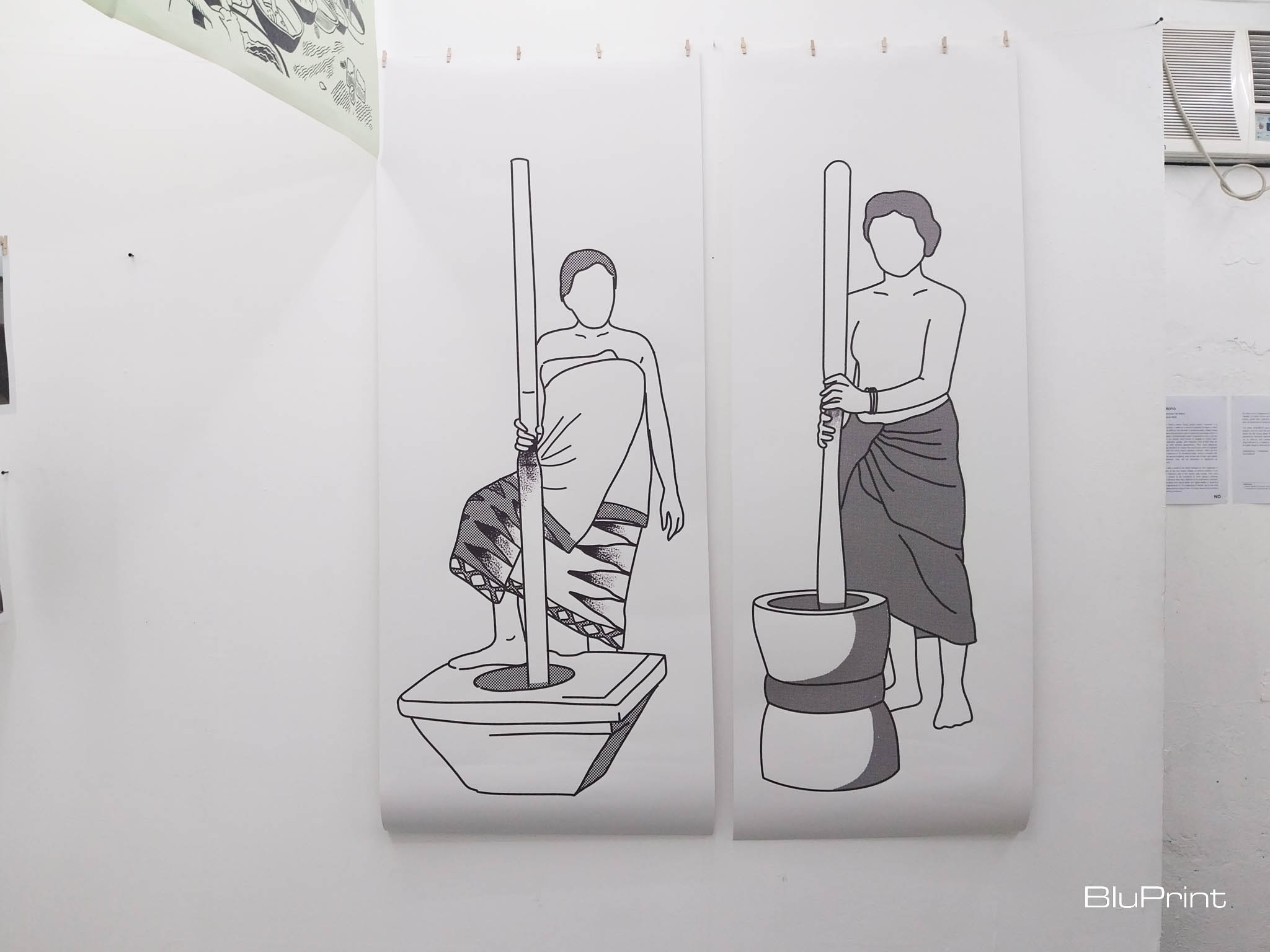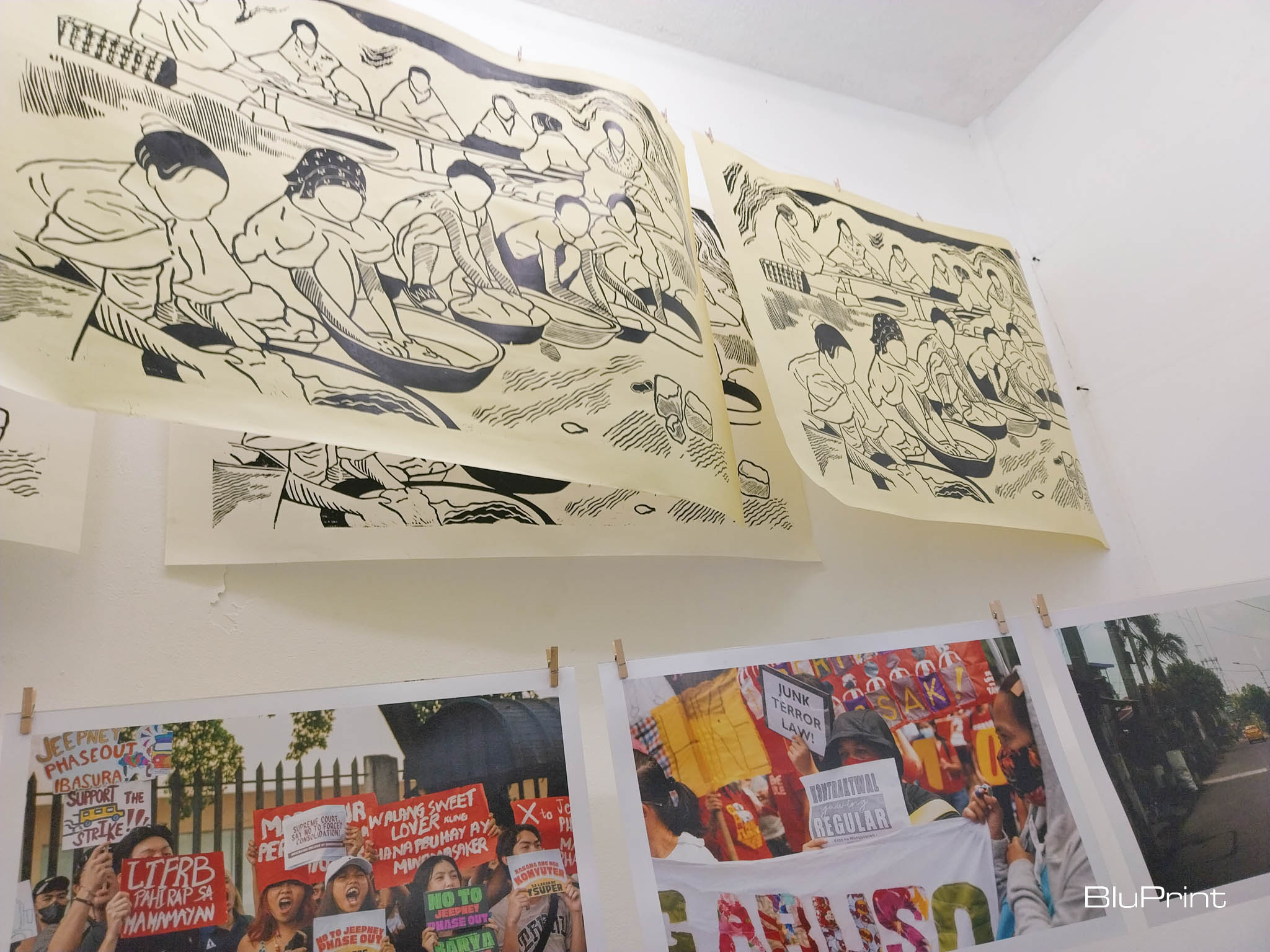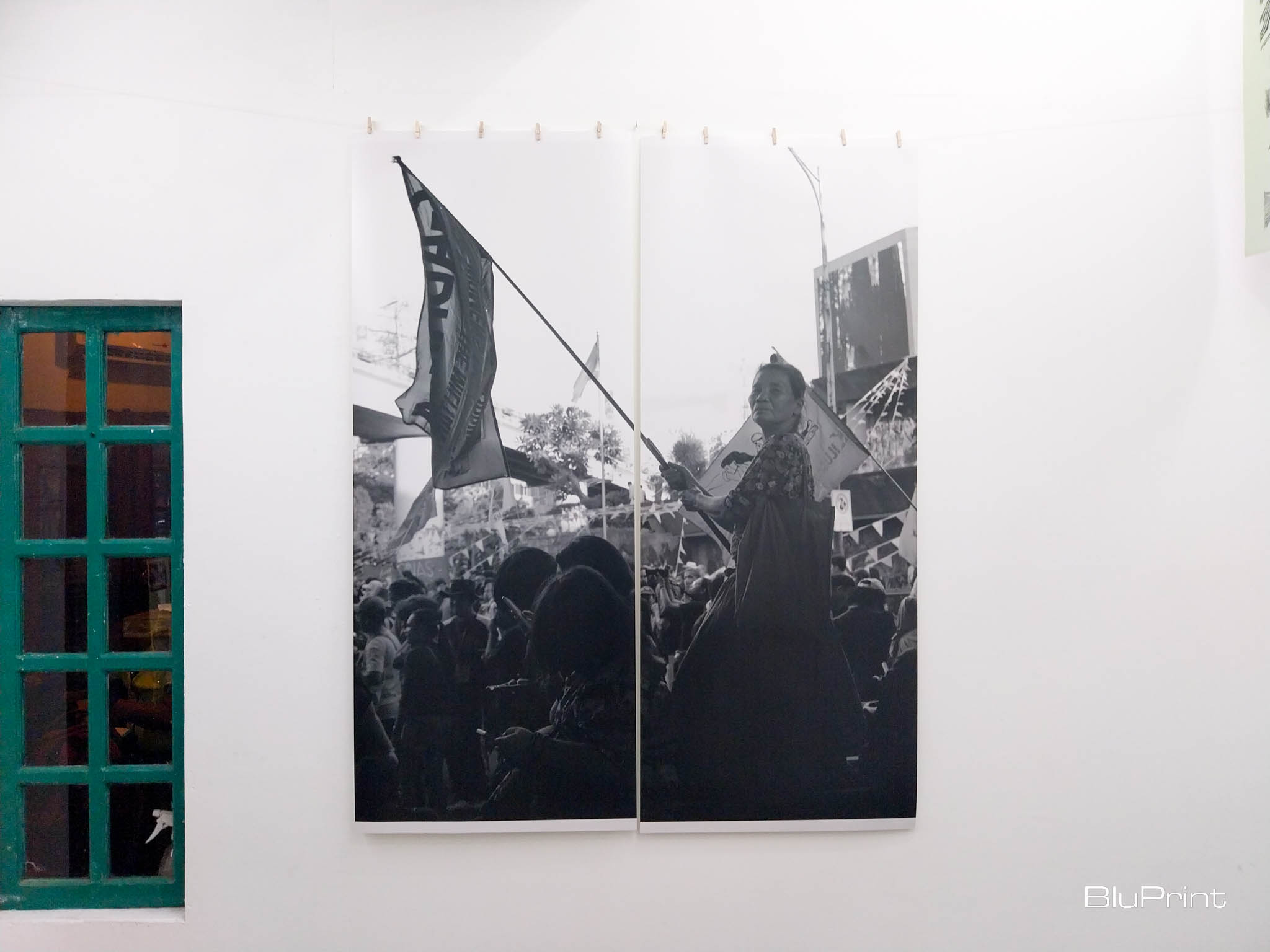
‘Alburoto’: Recontextualizing Labor Rights as a Women’s Issue
Alburoto is a new exhibit that ran in NO Community-run Space from March 2 to 17, 2023. A collaboration between visual artist Saya Villacorta and activist Tel Delvo, it looks into the history of the women’s rights and labor movement in the Philippines.
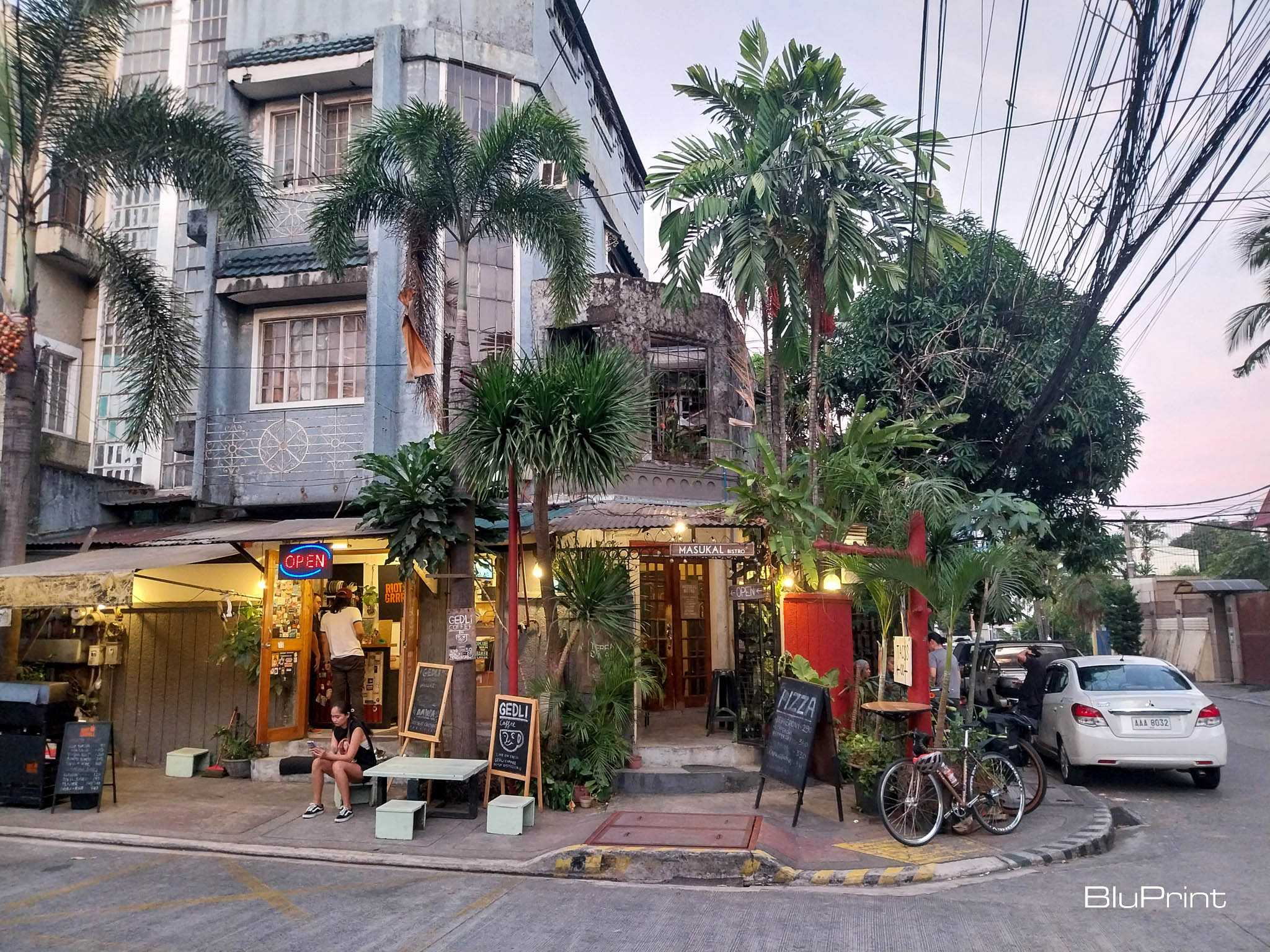
The exhibition’s title plays on the two meanings of ‘alburoto’. The first is to cry out in protest. But the second has a more sexist connotation, used by men when women complain about the unpaid household labor.
NO Community-run Space’s exhibition area is a small, square space with nary enough room for two people. The intimate set-up puts you close with photographs of protests by women activists pushing for equal rights in the workplace.
Documentation For Freedom
The pictures exhibited were taken by Tel Delvo. Her work pushes viewers close to the center of protests alongside the activists in the street. The collection includes different issues being protested at the time: women’s rights, food prices, transportation drivers’ rights, and workers’ rights.
It’s not just the people in the street that she photographs, but the activists in action as well. We see them organizing in offices, doing mass food cooking for laborers, and standing up against police officers in Mendiola. It offers a nuanced picture of the protest movement in the Philippines, showcasing the community working to be heard.
Beyond that, it portrays the importance of women in today’s activist movements. One of the inspirations of the exhibit is the Cigarreras of Manila; one of the first recorded protests of women workers in the country.
Like the Cigarreras in the past, the exhibit aims to break the country’s prevailing stereotypes regarding women’s roles in labor. This includes the idea that ‘women’s work,’ whether paid or unpaid, should be looked down upon by society.

“The show ALBUROTO aims to remind us that working class and peasant women have the power to resist the double burden brought about by the ruling class through exploitative conditions on land, plantations, factories, learning institutions, and so on. It encourages us to refocus and change our perception of what women empowerment is, in essence,” Tet Tabilon wrote for the exhibit.
Labor as a Woman’s Right
Saya Villacorta contributed original artwork to the exhibit, creating prints of women at work and organizing protests. It shows women doing traditional housework in the foreground, while sitting together in the background in the midst of discussion.
She also contributed Durugin 1 and Durugin 2. The portraits show two women standing tall over a traditional native mortar bowl. It is a picture that resonates because it shows that even in the past, women have always been part of the workforce, and should therefore be part of the conversation when it comes to the country’s labor issues.
Even in our modern times, society does not see domestic household labor and childcare as essential work. In fact, society still seems to devalue the work that housewives do to keep the world running as “women’s work.”
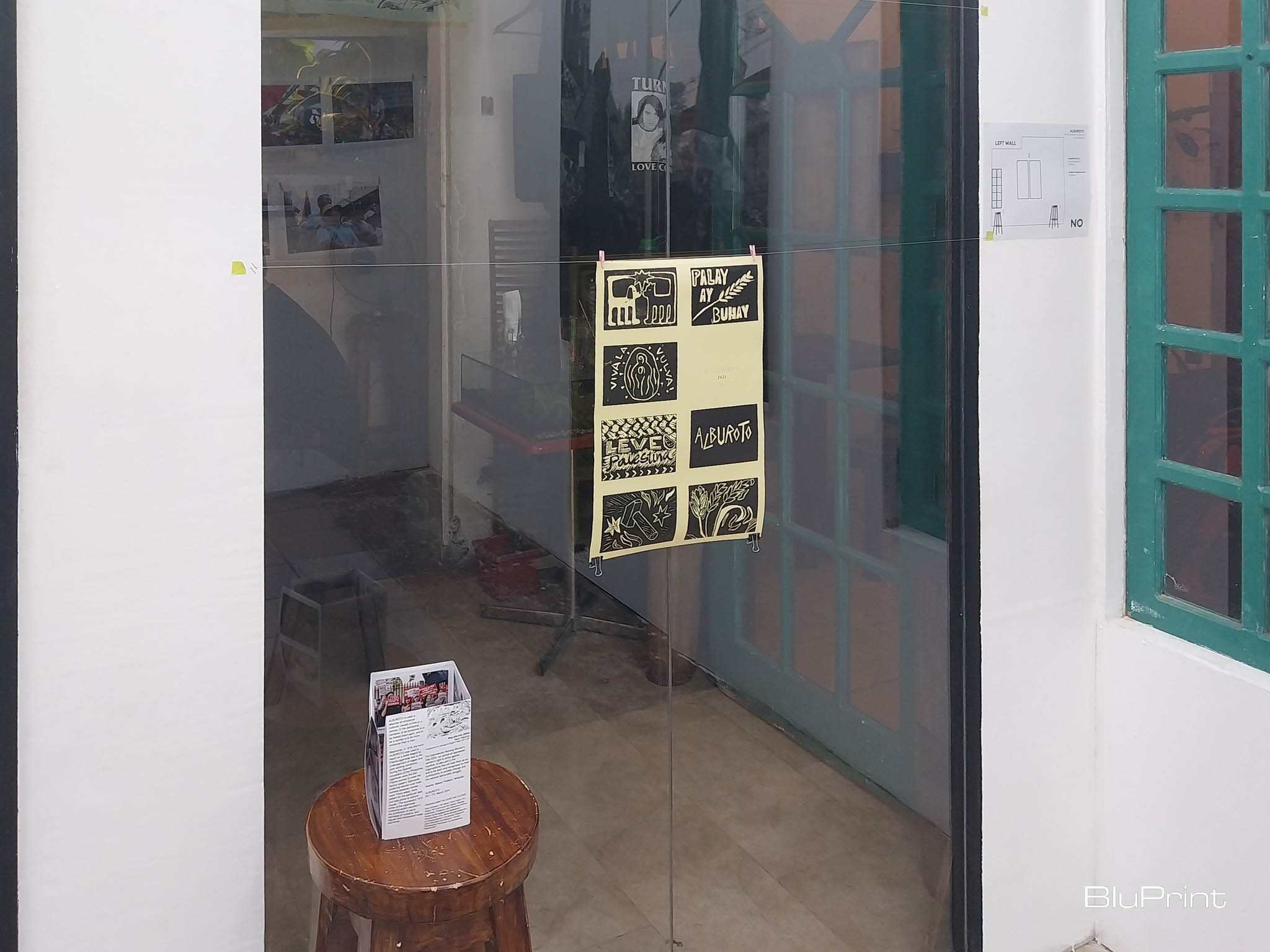
Alburoto puts forth the question of what we consider labor, how society can move away from patriarchal views of the necessity of so-called “women’s work,” and the efforts pushed by women activists to have them be seen as an essential part of society.
Related reading: ‘Warm Bodies’: Creating Empathetic Art in an Unkind World
